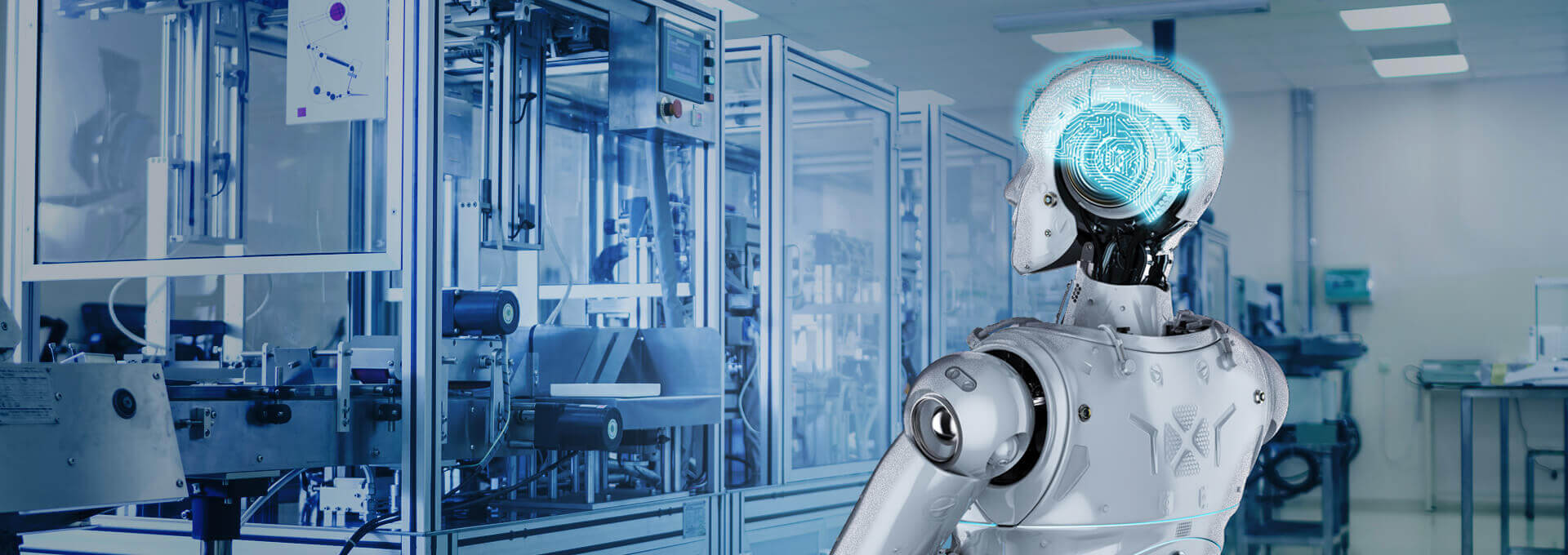Unleashing the Power of AI Revolutionizing Pharmaceutical Manufacturing for a Healthier Tomorrow

The field of medicine has undergone a remarkable transformation over the past two centuries. From simple herbal and botanical remedies, we have progressed to the complex manufacturing of sophisticated drug products and dosage forms. This evolution extends beyond medicines themselves; manufacturing practices have also advanced from small-scale manual processing with rudimentary tools to large-scale production within the trillion-dollar pharmaceutical industry. Today, we stand at the precipice of a new era of advancement, driven by technologies, such as the Internet of Things, artificial intelligence (AI), robotics and advanced computing, which are challenging traditional approaches and reshaping the landscape of pharmaceutical manufacturing.
The integration of these technologies has the potential to revolutionize pharmaceutical manufacturing, enhancing agility, efficiency, flexibility and quality. For instance, AI can analyze vast amounts of data to optimize production processes and predict potential issues. Robotics can automate tasks, reducing errors and improving efficiency, while advanced computing enables real-time monitoring and control, ensuring consistent, high-quality production. The next part of this article will delve into the transformative applications of AI in pharmaceutical manufacturing and explore how these advancements are propelling the industry forward, improving efficiency, quality and safety along the way.
Implementation of AI in Pharmaceutical Manufacturing
The integration of AI into pharmaceutical manufacturing marks a pivotal moment in the industry's ongoing pursuit of innovation and efficiency. AI, with its remarkable abilities in process optimization, predictive analytics, resource optimization, image processing, pattern recognition and decision-making, offers pharmaceutical companies unprecedented opportunities to optimize their processes across the entire spectrum of drug development and production.
At its core, AI empowers pharmaceutical manufacturers to make more informed decisions by extracting valuable insights from vast datasets. Through sophisticated algorithms, AI can analyze complex biological, chemical and clinical data, identifying patterns and relationships that may not be immediately apparent to human researchers. This capability enables companies to uncover potential drug candidates more efficiently, leading to faster and more targeted drug development efforts(1).
Drug Development Process Optimization
The drug development process involves several stages, including target selection and validation, compound screening, preclinical testing and clinical trials. AI plays a crucial role in optimizing each of these stages by analyzing vast amounts of data from biological, chemical and medical databases. Through deep semantic analysis, AI algorithms can uncover valuable insights and relationships between different variables, accelerating the identification of potential drug candidates and improving overall efficiency.
For example, AI can expedite the identification of potential therapeutics for rare diseases, where traditional research approaches may be limited by resource constraints. By leveraging advanced algorithms and machine-learning techniques, AI platforms sift through vast datasets to identify potential drug candidates with unprecedented efficiency. This streamlined process not only accelerates the identification of promising compounds but also enhances the precision of patient selection criteria for clinical trials (2).
Predictive Analytics and Resource Optimization
AI-based analytical solutions offer predictive capabilities that enable pharmaceutical companies to anticipate events and optimize resource allocation. These systems can recommend the most suitable scenarios for drug development, taking into account such factors as available resources, regulatory requirements and market demand. By leveraging AI algorithms, companies can make informed decisions that minimize risks and maximize outcomes throughout the drug development process.
Moreover, AI plays a significant role in epidemic/pandemic forecasting, efficiently analyzing vast datasets to predict and monitor disease outbreaks, aiding in early detection and effective management. By leveraging advanced algorithms and machine-learning techniques, AI enhances healthcare delivery, offering renewed hope for patients and clinicians alike (3).
Human–AI Collaboration and Social Implications
In the realms of pharmaceutical manufacturing, medical device production and healthcare delivery, the integration of AI has sparked discussions regarding its impact on the workforce and societal implications. While AI undoubtedly offers the potential to automate certain tasks and streamline processes, its role is more aligned with augmenting human expertise rather than replacing it entirely. Collaborative efforts between humans and AI algorithms can harness the strengths of both, leading to more informed decision-making and improved productivity.
Research underscores the value of human–AI collaboration, highlighting the complementary nature of human intuition, creativity and ethical judgment with AI's computational power and data-processing capabilities. Studies have shown that when humans and AI work together, they can achieve superior outcomes compared to either working alone. For example, in pharmaceutical manufacturing, AI algorithms can analyze vast datasets to identify potential process optimizations or quality-control improvements, while human experts provide contextual understanding and interpret the implications of AI-generated insights.
Furthermore, the social implications of AI integration underscore the importance of human oversight in critical decision-making processes, particularly those concerning human health and safety. Current legislation mandates human involvement in key aspects of pharmaceutical manufacturing, ensuring accountability and ethical considerations are upheld. This underscores the necessity of fostering collaboration between humans and AI systems, where human experts provide oversight, ethical guidance and domain-specific knowledge, while AI enhances efficiency, accuracy and innovation (4-5).
In essence, human–AI collaboration holds the promise of revolutionizing industries, such as pharmaceutical manufacturing and healthcare, leading to more efficient processes, improved decision-making and, ultimately, better outcomes for society. By embracing this collaborative approach, we can navigate the ethical and social implications of AI integration while harnessing its transformative potential to advance human well-being.
Conclusion
The integration of AI into pharmaceutical manufacturing represents a transformative leap forward for the industry. Through the application of advanced algorithms and machine-learning techniques, AI offers unprecedented opportunities to enhance efficiency, quality and safety across all stages of drug development and production. From optimizing processes and predicting potential issues to accelerating drug discovery for rare diseases and forecasting epidemics and pandemics, AI-driven solutions are revolutionizing healthcare delivery.
Moreover, the collaboration between humans and AI systems is proving to be indispensable, combining the strengths of human intuition, creativity and ethical judgment with AI's computational power and data processing capabilities. By fostering this collaborative approach, we can navigate the ethical and social implications of AI integration while harnessing its transformative potential to advance human well-being.
As we continue to embrace innovation and leverage technology to address complex challenges in pharmaceutical manufacturing, it is imperative that we uphold ethical standards, prioritize patient safety and ensure that the benefits of AI are equitably distributed. In the nexus of human ingenuity and artificial intelligence, the future of pharmaceutical manufacturing shines bright with promise, forging a path towards a world where precision, efficiency and compassion intersect to redefine the boundaries of healthcare excellence.
References
- The role of artificial intelligence in business transformation: A case of pharmaceutical companies, Technology in Society, Volume 66,2021,101629, ISSN 0160-791X.
- Artificial intelligence to deep learning: machine intelligence approach for drug discovery. Mol Divers 25, 1315–1360 (2021).
- Artificial Intelligence in Pharmaceutical and Healthcare Research. Big Data Cogn. Comput. 2023, 7, 10.
- Reflection paper on the use of artificial intelligence in the lifecycle of medicines European Medicines Agency (europa.eu).



